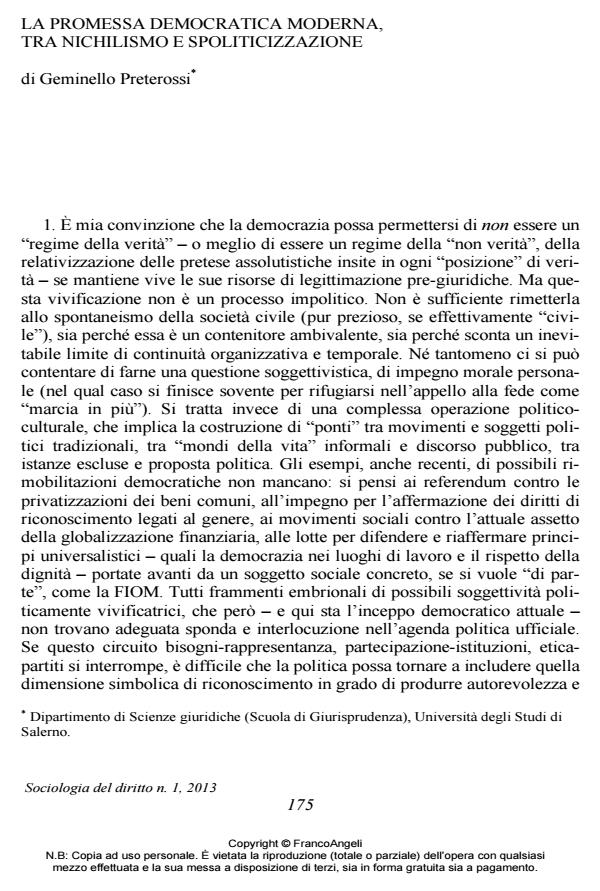The modern democratic promise, between Nihilism and depoliticisation
Journal title SOCIOLOGIA DEL DIRITTO
Author/s Geminello Preterossi
Publishing Year 2013 Issue 2013/1
Language Italian Pages 12 P. 175-186 File size 186 KB
DOI 10.3280/SD2013-001013
DOI is like a bar code for intellectual property: to have more infomation
click here
Below, you can see the article first page
If you want to buy this article in PDF format, you can do it, following the instructions to buy download credits

FrancoAngeli is member of Publishers International Linking Association, Inc (PILA), a not-for-profit association which run the CrossRef service enabling links to and from online scholarly content.
The thesis upheld in this article is that democracy can afford not to be a "regime of truth" if it ensures that its pre-legal resources of legitimisation are kept alive. This vitalisation is not an apolitical process. The issue of the resources of meaning of pluralist democracies ultimately questions the "status of modernity". This essay explores the problematic and its ambivalences by analysing the concepts of neutralisation and depoliticisation derived from Schmitt. The model proposed by legal nihilism, according to which modernity, with its voluntarism, brings about a neutralisation that is destined to result in the selfreferential domain of technique, is excessively reductionist. In the opinion of the author, the modern legal order is not so much "nihilist" as an "order of recognition" that is structurally open to renewed forms of integration. Nevertheless, the last thirty years have left a heritage of a double denial of politics that threatens the future of democracy.
Keywords: Democracy, Nihilism, Depoliticisation, Modernity, Secularisation
Geminello Preterossi, La promessa democratica moderna, tra nichilismo e spoliticizzazione in "SOCIOLOGIA DEL DIRITTO " 1/2013, pp 175-186, DOI: 10.3280/SD2013-001013